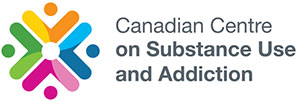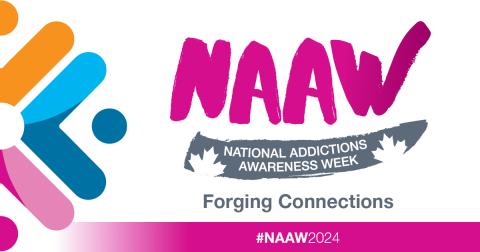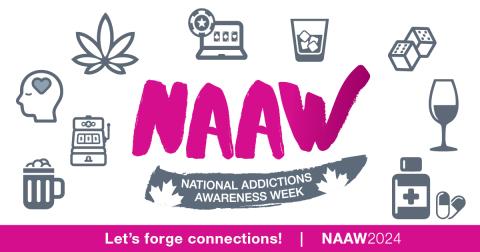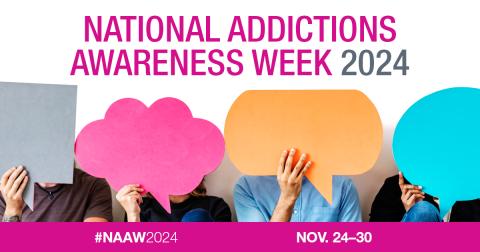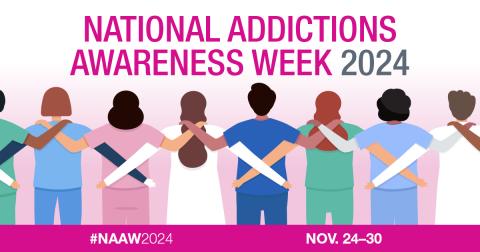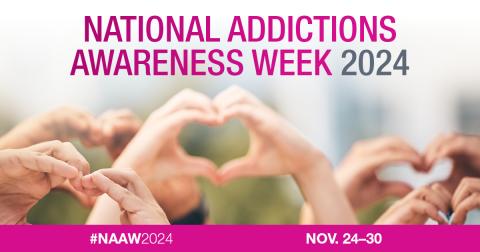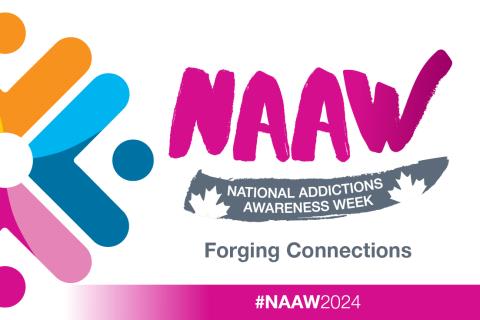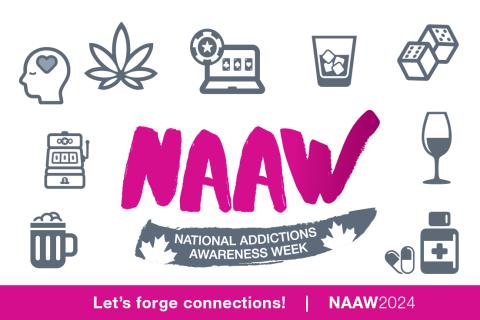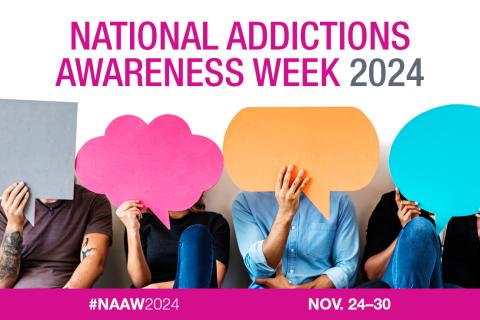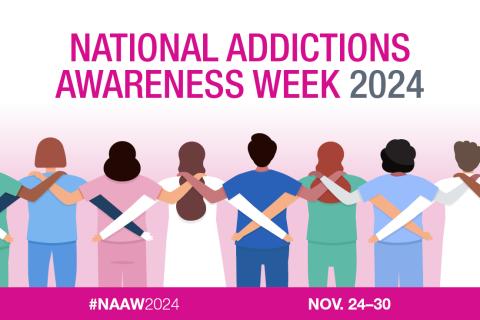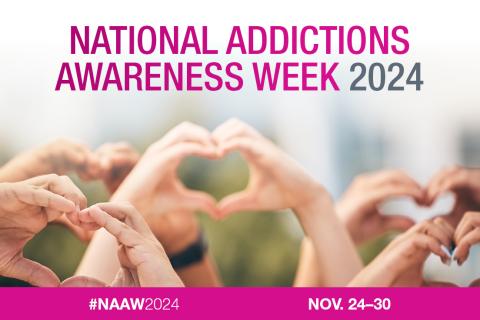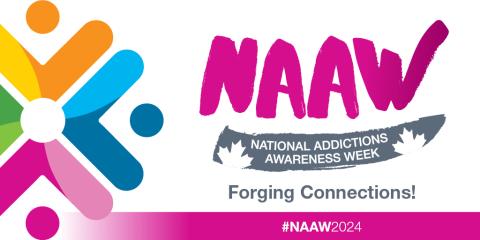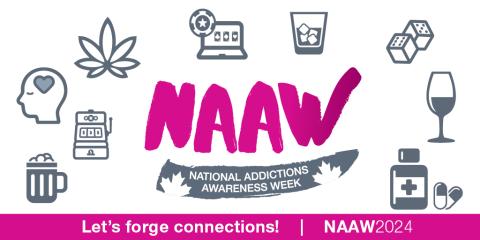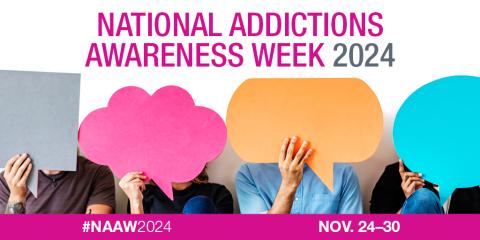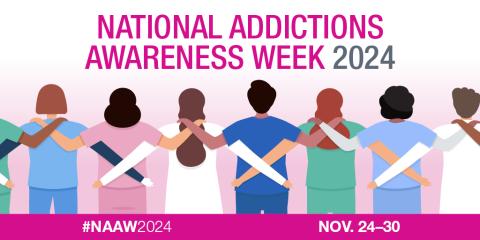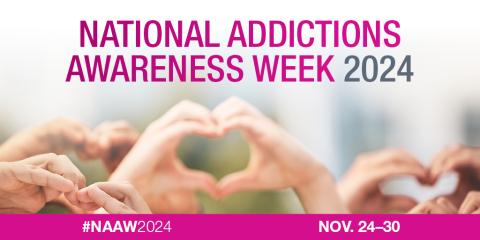Secondary Body
Social Media Content Bank: Share the Facts
Share the facts below on their own or with the social media graphics for National Addictions Awareness Week.
Facebook
Instagram
LinkedIn
Twitter
Sunday, November 24 — Cannabis
Share the Facts: Health Canada’s Is Cannabis Addictive? shows that the younger an individual is when they begin using cannabis, the higher their risk of health problems, such as addiction, and other mental health issues including psychosis, schizophrenia, social anxiety and depression. Read the resource series to learn more: https://www.canada.ca/en/health-canada/services/publications/drugs-health-products/cannabis-addictive.html #NAAW2024
Share the Facts: Individuals who display risky behaviour and impulsive decision making are more likely to develop problematic cannabis use and cannabis use disorder. Delve into CCSA’s Clearing the Smoke on Cannabis: Highlights to learn more about evidence related to the effects of cannabis use on various aspects of human health, functioning and development: https://www.ccsa.ca/clearing-smoke-cannabis-highlights #NAAW2024
Monday, November 25 — Substance Use and Stigma
Share the Facts: Stigma is a major barrier to the well-being and recovery of people with lived and living experience of substance use disorders. Check out our animated video to explore the devastating impact of substance use stigma and how to challenge it in our communities: https://www.youtube.com/watch?v=RD0EOwWK8gI&t=12s
Share the Facts: 400+ people in Canada are hospitalized every day for harms related to drug and alcohol use. Substance use disorders affect all walks of life, regardless of income level, profession, age, cultural background or neighbourhood. Test your knowledge of stigma associated with substance use with our online learning modules: https://www.ccsa.ca/overcoming-stigma-online-learning #NAAW2024
Tuesday, November 26 — Fentanyl
Share the Facts: Fentanyl is considerably more toxic than other opioids and is extremely lethal. Even small quantities can result in overdose, and people can die with their first use. Learn more about fentanyl: https://www.ccsa.ca/illicit-fentanyl-ccendu-drug-alert #NAAW2024
Wednesday, November 27 — Opioids
Share the Facts: Between January 2016 and March 2022, 30,843 apparent opioid-related deaths occurred in Canada. Get the data through our drug summary on opioids: https://www.ccsa.ca/sites/default/files/2022-11/CCSA-Canadian-Drug-Summary--Opioids-2022-en.pdf #NAAW2024
Share the Facts: While prescription opioids may help with pain management, some people have a higher risk of developing physical dependence or opioid use disorder due to factors such as genetics and trauma. Get insights about a range of strategies to manage pain: https://www.ccsa.ca/sites/default/files/2021-06/CCSA-Opioids-Pain-Management-Poster-2021-en.pdf #NAAW2024
Thursday, November 28 — Gambling
Share the Facts: Mental health concerns such as anxiety and depression are risk factors associated with people who gambled online at high-risk levels during the pandemic. Get informed with our report: https://www.ccsa.ca/sites/default/files/2024-06/Gambling-Availability-and-Advertising-in-Canada-en.pdf #NAAW2024
Friday, November 29 — Alcohol
Share the Facts: Drinking less alcohol benefits you and others. It reduces your risk of injury, violence and many health problems that can shorten life. Learn more: https://www.ccsa.ca/sites/default/files/2024-05/Canadas-Guidance-on-Alcohol-and-Health-poster-2023-en.pdf #NAAW2024
Share the Facts: Drinking alcohol is a leading cause of death and social issues in young people. Intoxication is associated with high risks of injuries, aggression and violence, dating violence and worsening academic performance. Check out CCSA’s self-help resource for tips and guidance on reducing alcohol consumption. It can be used independently or with the guidance of a healthcare provider: https://www.ccsa.ca/drinking-less-better-canadas-guidance-alcohol-and-health-youth-version #NAAW2024
Saturday, November 30 — Journey to Wellness Is Real
Share the Facts: The stigma around substance use is one of the biggest barriers for people seeking and receiving treatment for substance use disorders. Substance use disorder is a treatable, medically diagnosed, health condition. By using person-first language, you can begin to change the way you think about and treat people with substance use disorder. Learn more about reducing stigma around substance use from our webpage: https://www.ccsa.ca/stigma #NAAW2024
Share the Facts: Everyone’s goals and paths to wellness are different. Check out CCSA’s guide, which supports decision making for people considering an in-patient treatment program for substance use: https://www.ccsa.ca/sites/default/files/2024-03/In-Patient-Treatment-for-Substance-Use-in-Canada.pdf #NAAW2024
